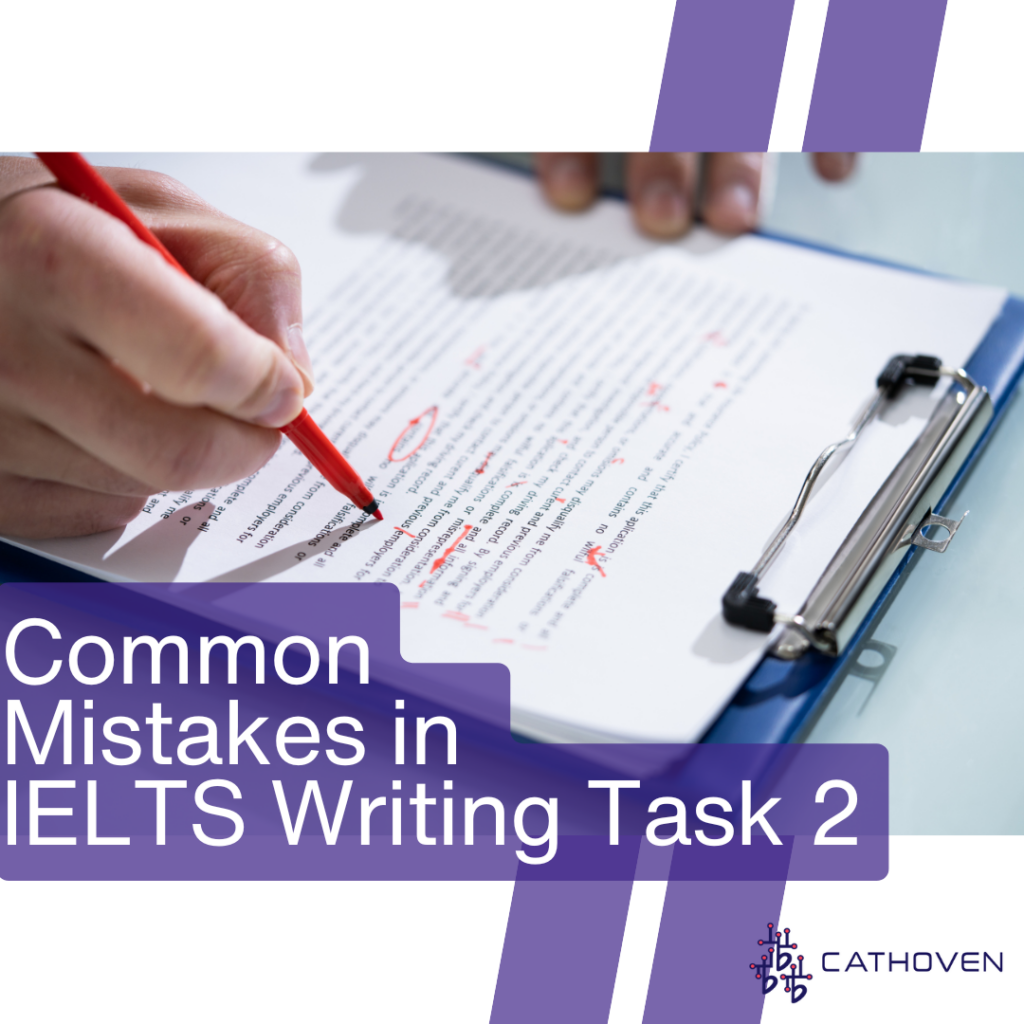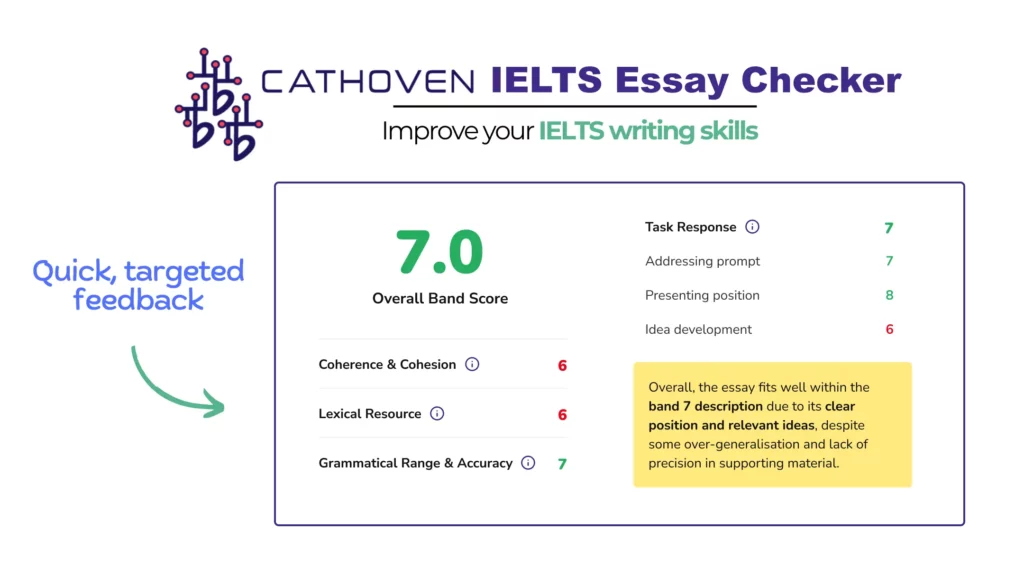Writing a strong IELTS Task 2 essay isn’t just about good grammar—it’s about fully addressing the prompt, organizing ideas clearly, and developing arguments effectively. Many test-takers make avoidable mistakes that lower their scores. Below are some of the most common issues and how to fix them:

Not fully addressing the question
Many test-takers either misunderstand the prompt or only partially answer it, which lowers their Task Achievement score. For example, if a question asks about both the causes and solutions of a problem, but the essay only discusses causes, the response is incomplete.
Lack of clear structure
Essays should follow a logical format with an introduction, body paragraphs, and conclusion, ensuring ideas flow smoothly. Without proper coherence and cohesion, even strong arguments may seem disorganized, making it harder for examiners to follow the writer’s ideas.
Poor idea development
Some candidates list multiple points without explaining them in detail. Instead of briefly mentioning three advantages of online learning, it is better to explain two ideas with supporting examples. A well-developed argument scores higher than a list of undeveloped points.
Poor time management
Many test-takers spend too much time on planning or Task 1, leaving little time for Task 2. Since Task 2 carries more weight in the writing score, it is crucial to allocate enough time—aiming for 5 minutes planning, 30 minutes writing, and 5 minutes reviewing.
Overusing memorized phrases
Candidates sometimes rely on template phrases that sound unnatural or repetitive. Examiners can recognize memorized content, which can negatively impact the lexical resource score. Instead of forcing complex words or phrases, focus on accuracy and clarity.
Using informal language
Phrases like “a lot of,” “kids,” or “gonna” make writing too casual. Instead, using “many,” “children,” or “going to” maintains an academic tone suitable for the IELTS exam.
How to Improve Your IELTS Writing
To avoid these mistakes, ensure you practice regularly and get feedback to identify areas for improvement. Our IELTS Essay Checker can help by analyzing your writing, highlighting key errors, and providing essential suggestions. With instant feedback on task achievement, coherence, grammar, and vocabulary, you can refine your essays and boost your score more effectively.

